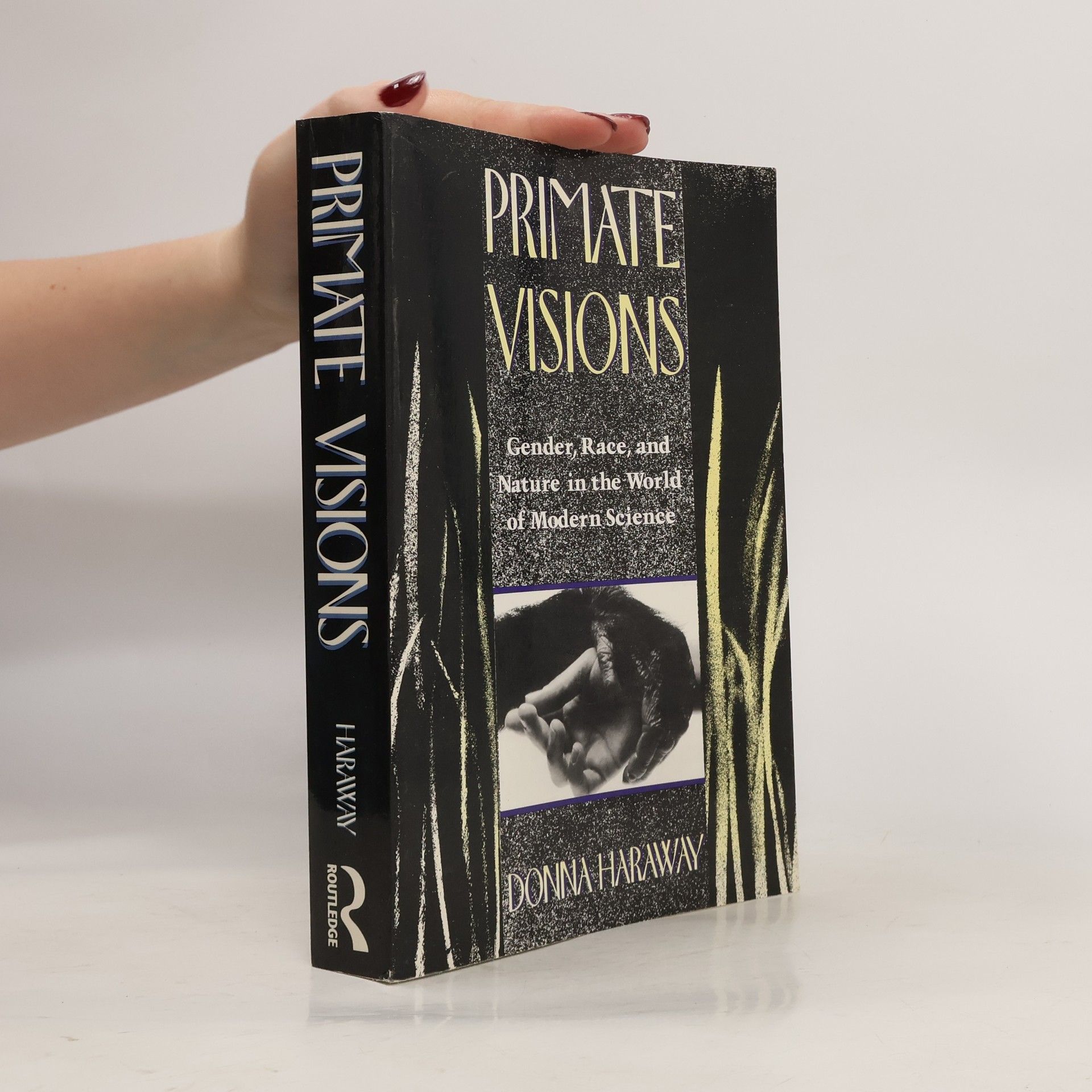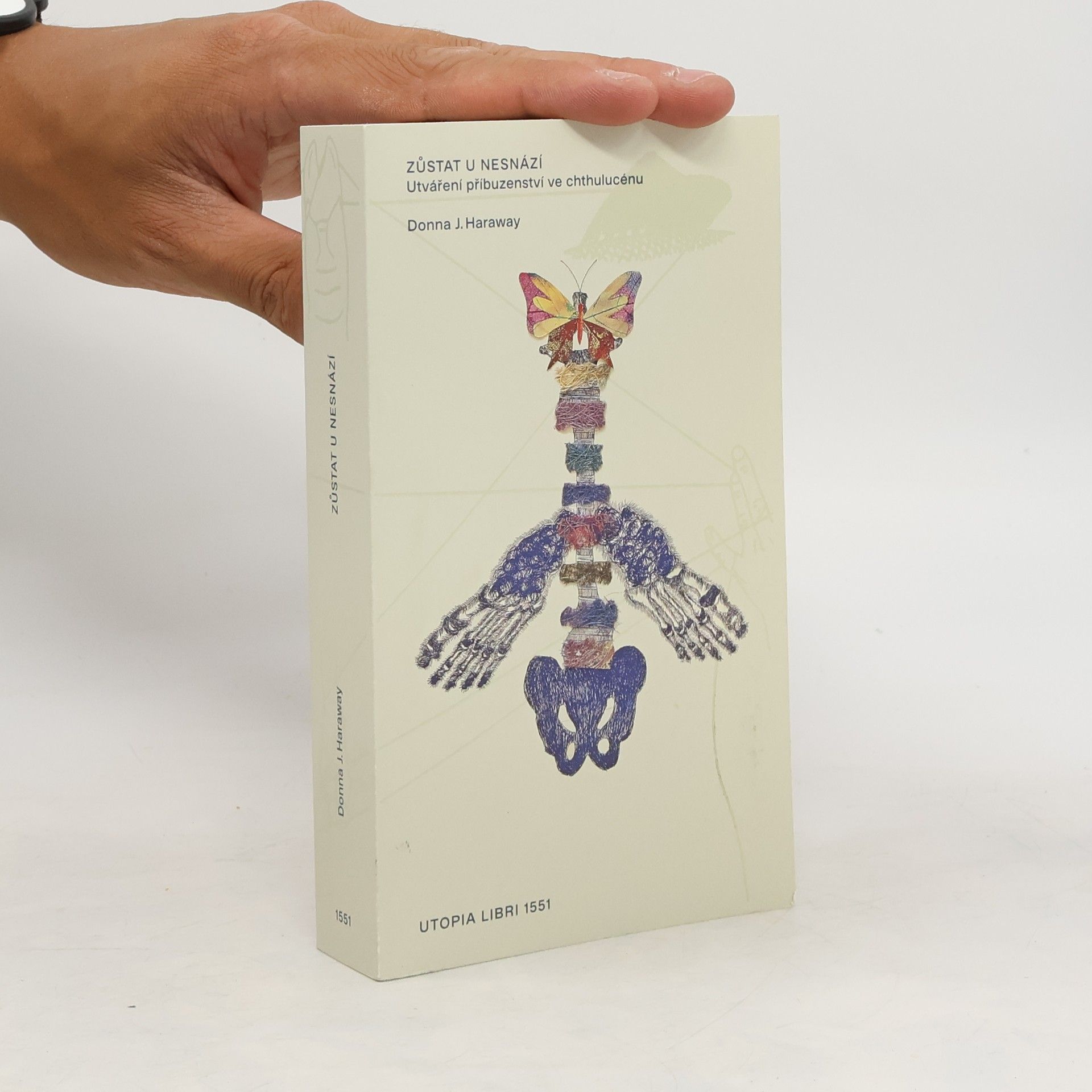Zůstat u nesnází
utváření příbuzenství ve chthulucénu
Donna J. Haraway je autorkou viacerých kníh, ktoré skúmajú vzťahy medzi ľuďmi, technológiami a prírodou. Jej práca sa často zameriava na to, ako môžeme lepšie pochopiť a prepojiť sa s okolitým svetom. Prostredníctvom svojich textov podnecuje čitateľov k premýšľaniu o budúcnosti a našom mieste v nej.






utváření příbuzenství ve chthulucénu
Electrifying and provocative, Donna Haraway's "Cyborg Manifesto," published thirty years ago, remains highly relevant today as it challenges complex divisions of human and machine, gender, class, race, ethnicity, sexuality, and location. The "Companion Species Manifesto" further interrogates the human-nonhuman divide, making it essential in our era of environmental crisis and polarization. Together, these manifestos reveal the continuity of Haraway's thought, engaging readers in a conversation with her long-term friend Cary Wolfe. Through a dialogue on the history and significance of the manifestos, they explore themes such as biopolitics, feminism, Marxism, human-nonhuman relationships, making kin, literary tropes, material semiotics, and secular Catholicism. The discussion culminates in insights into Haraway's "Chthulucene Manifesto," which contrasts the bleak narratives of the Anthropocene and Capitalocene. Committed to fostering diverse and robust earthly flourishing, this work aims to reignite essential conversations about biologies, technologies, histories, and potential futures, both within and beyond academic circles.
Offering a comprehensive selection of Donna Haraway's writings, this volume showcases her insightful observations on nature, science, and society. It serves as an excellent introduction to her thought-provoking ideas, reflecting her unique perspective and contributions to contemporary discourse.
Acclaimed theorist and social scientist Donna Jeanne Haraway uses the work of pioneering developmental biologists Ross G. Harrison, Joseph Needham, and Paul Weiss as a springboard for a discussion about a shift in developmental biology from a vitalism-mechanism framework to organicism. The book deftly interweaves Thomas Kuhn's concept of paradigm change into this wide-ranging analysis, emphasizing the role of model, analogy, and metaphor in the paradigm and arguing that any truly useful theoretical system in biology must have a central metaphor.
Haraway's discussions of how scientists have perceived the sexual nature of female primates opens a new chapter in feminist theory, raising unsettling questions about models of the family and of heterosexuality in primate research.
Explores the world of contemporary technoscience through the role of stories, figures, dreams, theories, advertising and politics.
Donna Haraway analyses accounts, narratives, and stories of the creation of nature, living organisms, and cyborgs (cybernetic components); showing how deeply cultural assumptions penetrate into allegedly value-neutral medical research.
Donna J. Haraway refigures our current epoch, moving away from the Anthropocene toward the Chthulucene: an epoch in which we stay with the trouble of living and dying on a damaged earth while living with and understanding the nonhuman in complex ways conducive to building more livable futures.
The author of four seminal works on science and culture, Donna Haraway here speaks for the first time in a direct and non-academic voice. How Like a Leaf will be a welcome inside view of the author's thought.
This deeply personal yet intellectually groundbreaking work develops the idea of companion species and deftly explores philosophical, cultural, and biological aspects of animal-human encounters.